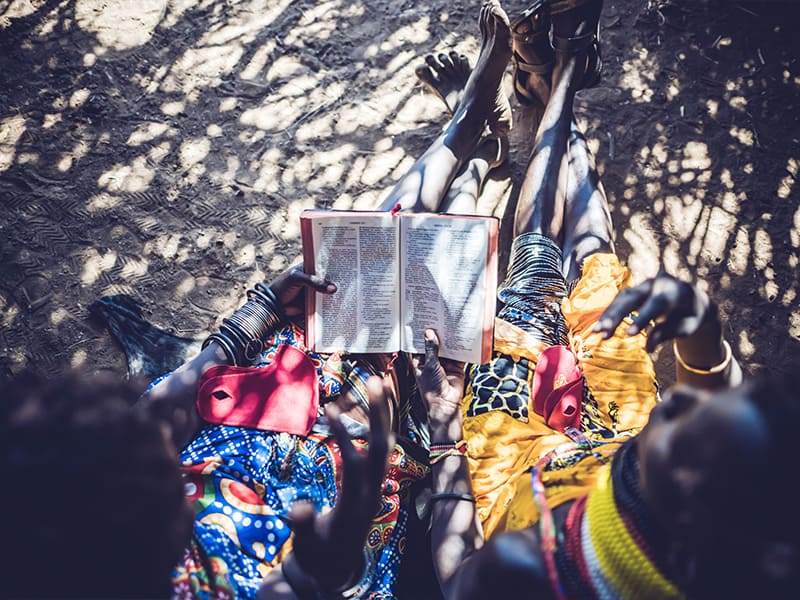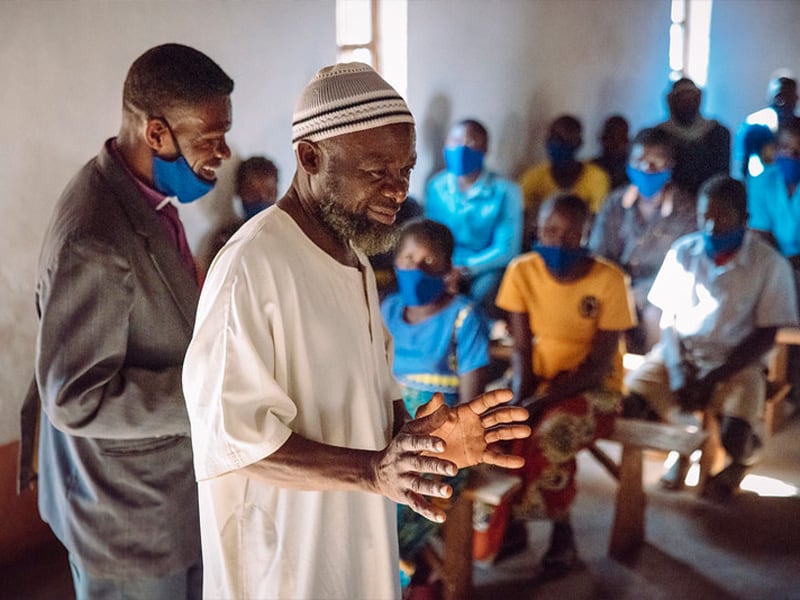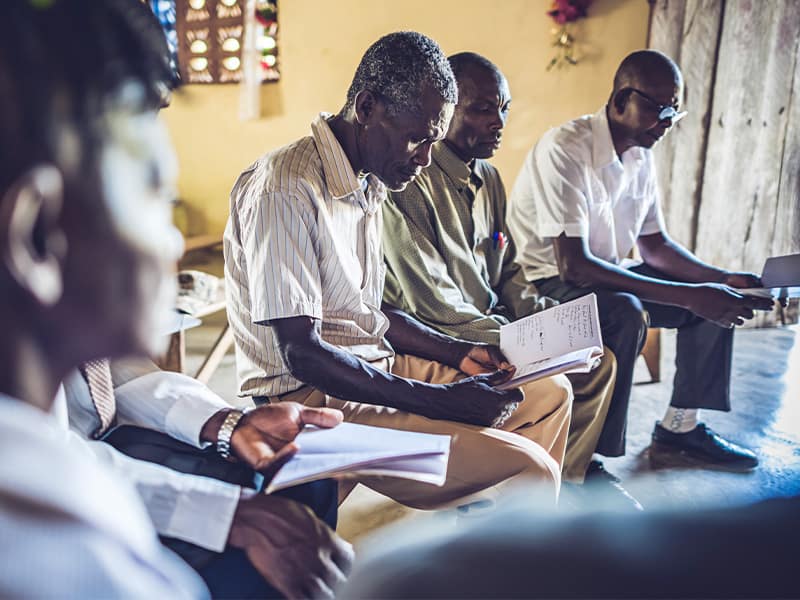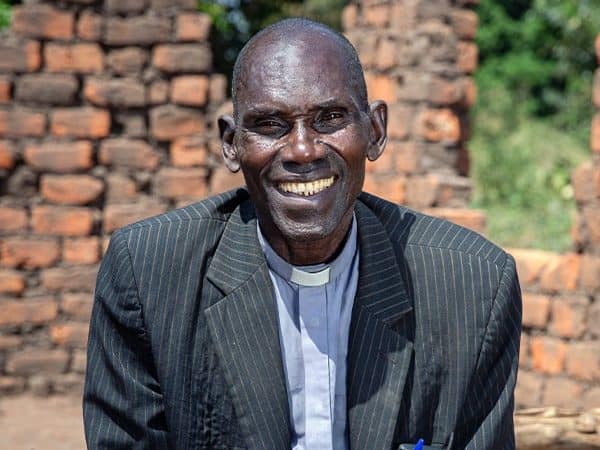Embracing Uncomfortable Conversations: 4 Lessons We Learned Engaging Faith Leaders in Family Planning
Conversations around family planning and reproductive health can be uncomfortable for many — especially when they take place in faith settings. But at World Relief, our decades of experience have shown us that faith leaders are often best positioned to have these conversations and pave the way for families to thrive in their communities.
That’s why, in 2019, we launched the USAID-funded Strengthening Community Health Outcomes with Positive Engagement (SCOPE) Project across four countries — Haiti, Malawi, Kenya and South Sudan. Our goal was to shorten the distance between families who live in hard-to-reach communities and the health information and services they need.
Sometimes this distance is physical, as women walk several kilometers along rough roads to reach their antenatal appointments. Other times, this distance is cultural or behavioral with women often feeling stigmatized or ignored by their communities when they try to access modern contraception and information related to sexual and reproductive health. What’s more, traditional beliefs, family pressure and/or religious views can stand also between a woman and the care she needs.
While faith leaders are often pointed to as those who stand in opposition to the spread of important health information, we know that faith leaders can play a vital role in combatting harmful beliefs in their communities. When equipped with the right information and training, they have the power to make a positive change in people’s lives.

SCOPE’s community engagement strategy begins with training faith leaders using the Making Our Communities Better program. This three-day seminar is designed to help faith leaders understand their role in promoting health and development initiatives in their communities.
“This is the first time that a project has engaged us on issues that affect our health and development in this community,” said Sheikh Jumma, a faith leader from Traditional Authority Khongoni in Lilongwe, Malawi. “Many people seek guidance from faith leaders for their daily problems, and I feel we have a greater role to play to change their mindset and point them to the right behaviors as well as encouraging them to access medical help on time. The SCOPE project has opened our eyes.”
Through SCOPE, faith leaders like Sheikh Jumma make a difference by increasing the demand for health services, promoting positive social and behavioral change and bridging the gap between community members and the health system. Over the past four years, SCOPE has engaged over 5,800 faith leaders who have reached more than 108,000 in their congregations, addressing various health and family planning topics in the four countries.

Here are four lessons we learned about engaging faith leaders in family planning conversations:
1. Engage Faith Leaders Early
Early engagement is crucial for gaining faith leaders’ support and for ensuring the program is relevant to the congregation. From the start, SCOPE worked closely with national and local faith leaders to ensure that educational materials were both culturally appropriate and provided accurate health messages. Faith leaders feel most comfortable with difficult subjects if the content is connected to the language of their faith and resonates with their beliefs and values.

For example, when SCOPE sought to contextualize Family Life Education — a curriculum that equips faith leaders to communicate on sexual and reproductive health from their faith perspective — we engaged 81 Christian and Muslim faith leaders in a series of national-level workshops to orient them to the material and receive feedback. This process ensured that the content was appropriate and nuanced and that faith leaders felt comfortable delivering it.
2. Develop Selection Criteria
When word of SCOPE’s impact got out, many faith leaders became interested in participating, sometimes beyond project capacity. Our SCOPE team developed selection criteria to help us decide which faith institutions should be prioritized for meaningful impact. That criteria included:
- Congregation Size: Rural communities have many churches, some quite small. Focusing on larger institutions ensures a broader reach of the messages.
- Capacity for Training Cascade: Faith institutions that can send 3-4 participants to trainings are preferred. This allows for a diverse group from each institution to attend and bring back what they learn to their community.
- Interest in Community Engagement: SCOPE focused on faith institutions that demonstrated enthusiasm for engaging their community on family planning and reproductive health topics. This ensures that the training has a lasting impact and generates ongoing discussions and support.
- Geographic Coverage: The geographic location of the faith institutions within the SCOPE catchment area is important for ensuring that training reaches a wide range of communities and is evenly distributed.

3. Adapt for Low Literacy Facilitators
In some communities, illiteracy was an issue among the population, including among faith leaders. To address this, the selection criteria were adapted to focus on the dedication of faith leaders, rather than their ability to read and write.
While at least one educator from each faith institution should be able to read and write in the local language(s), leaders who were passionate about helping their community but couldn’t read and write were still included in the program. SCOPE staff supported faith leaders by helping them memorize the key messages of the curriculum and providing regular assistance during lessons. Certain job aids and tools were also adapted to pictorial format.
4. Introduce Faith Leaders to the Nearest Community Health Worker (CHW)
As faith leaders became more knowledgeable about family planning methods and services, they also started referring their congregants to needed health services. SCOPE formed a “community of referrals” among CHWs, faith leaders and other community leaders to get women the services they need. As a result of the training they received through SCOPE, CHWs and faith leaders worked in tandem to refer clients to the nearest facility or mobile clinic.
Learn more about SCOPE’s work with faith leaders.

Laura DePauw serves as the Knowledge Management Advisor for World Relief’s Strengthening Community Health Outcomes Through Positive Engagement (SCOPE) project providing knowledge management, communications, and information management across the project’s four countries.

Dennis Mwangwela serves as Director of Integral Mission for World Relief’s International Programs. With over 20 years of experience in international development, he provides technical support to World Relief’s country offices, focusing on building staff capacity to mobilize and engage local churches and communities so that they can address diverse vulnerabilities in their communities. Dennis is passionate about church and community-led transformation through belief and mindset changes. Born and raised in Malawi, Dennis has been married to his wife, Agnes, for 26 years, and they have four children.

